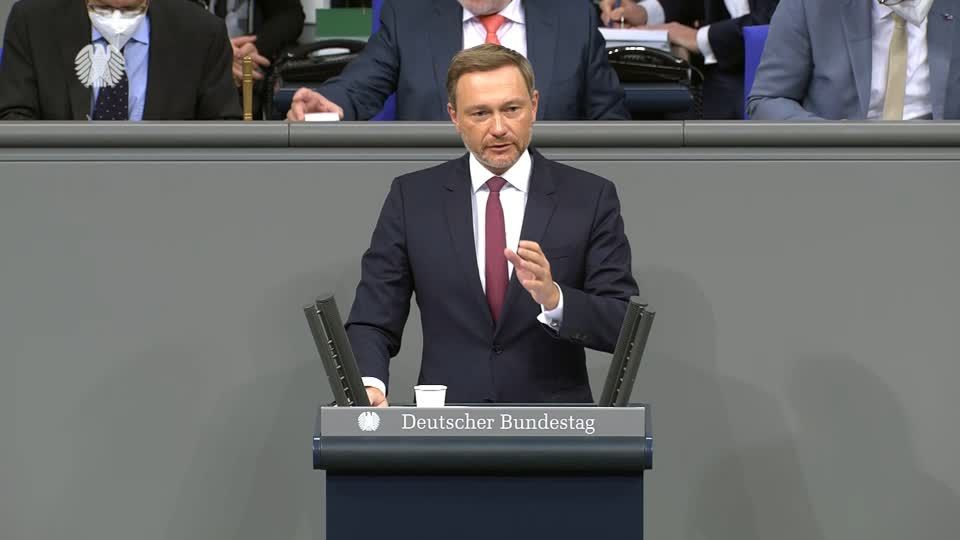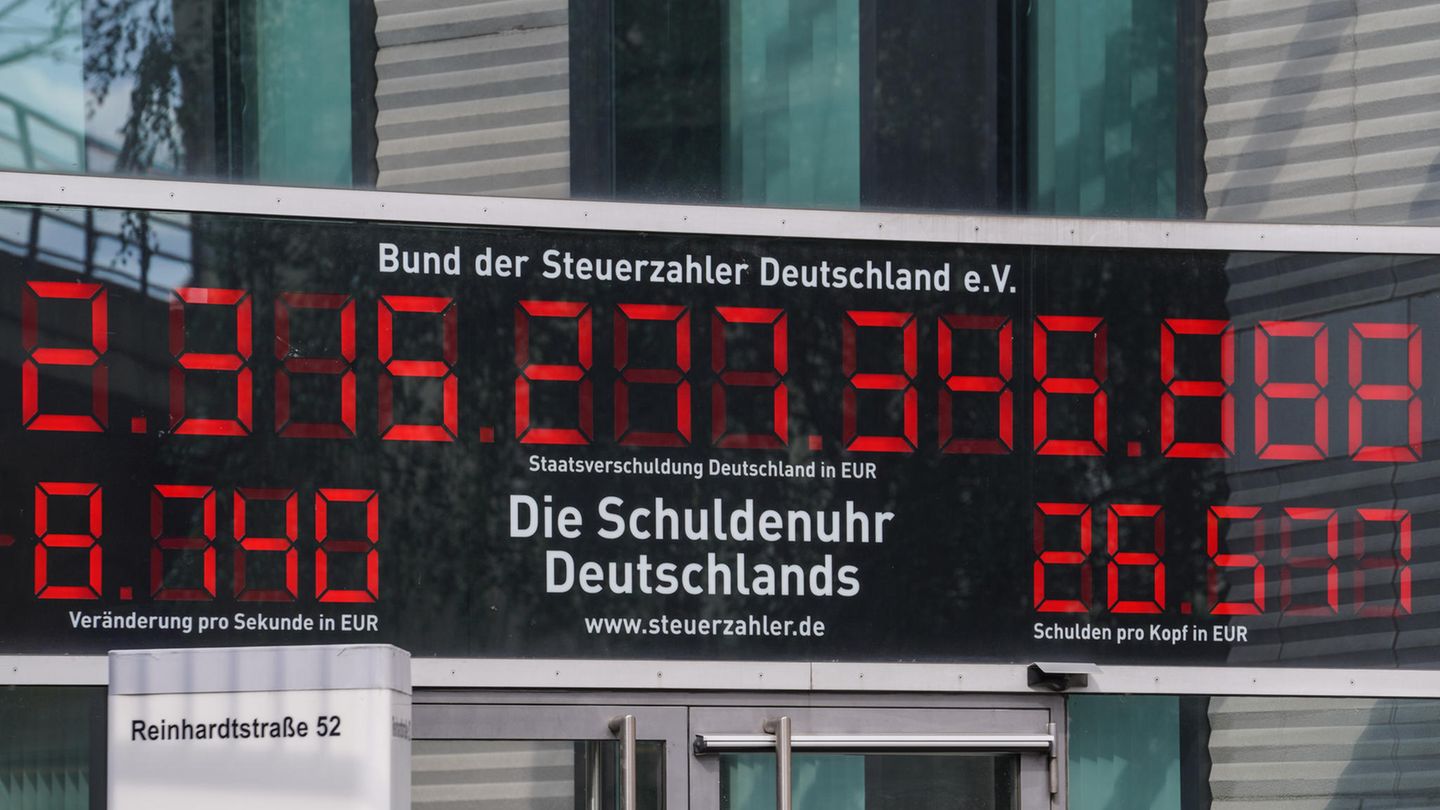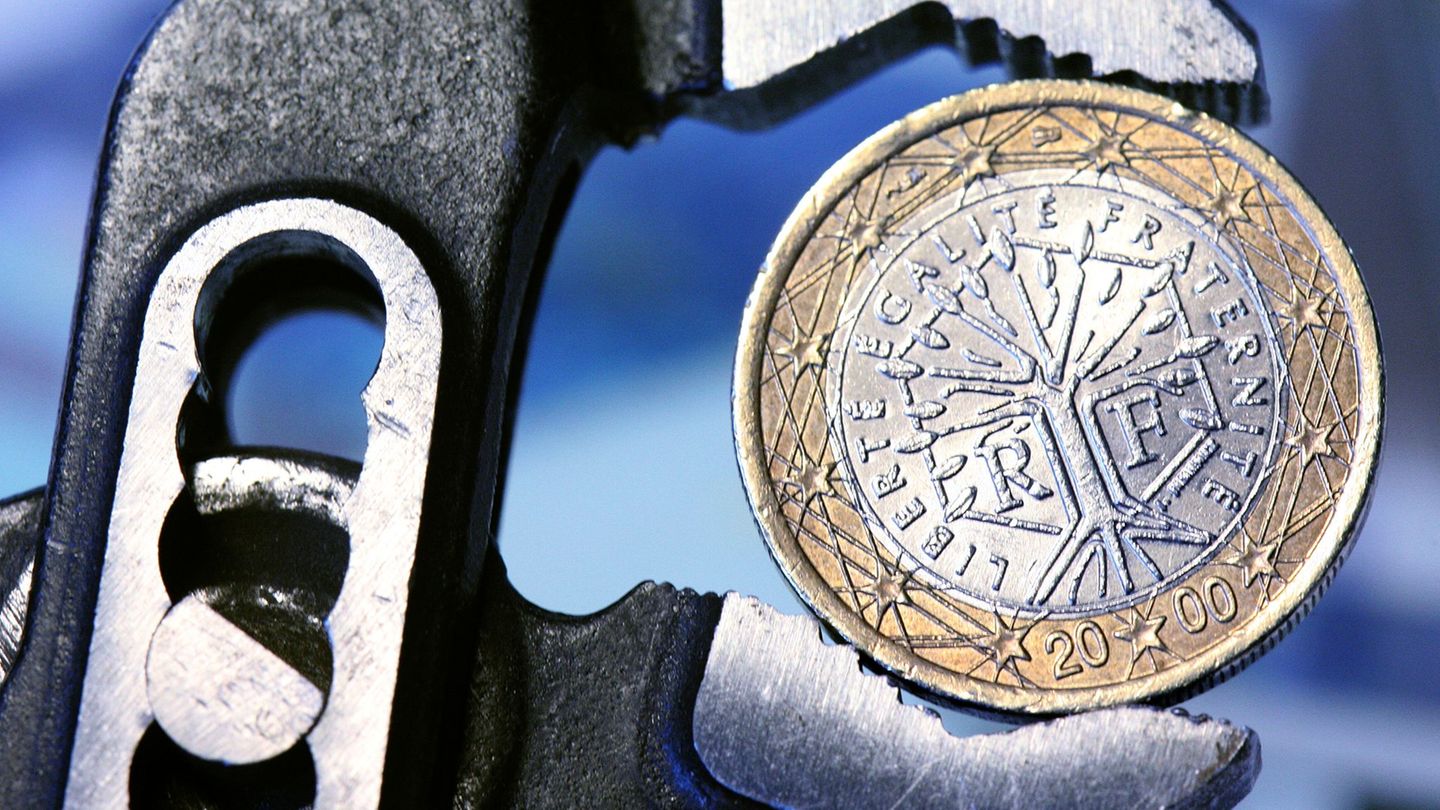The war in Ukraine forces Finance Minister Lindner to revise his budget. More debt is needed. Certainly not an easy step for the FDP leader.
Since the Russian attack on Ukraine, the federal government hasn’t looked at the cent: relief packages worth billions and tax cuts because of the exploding energy prices, support for companies, humanitarian aid. All of this means that FDP leader Christian Lindner now has to incur significantly more debt than he could have imagined when he took office as federal finance minister in winter.
It was already clear that the budget for 2022 would be updated when Lindner presented his plans to the cabinet in March: the consequences of the Ukraine war had not yet been priced in at the time. Several weeks of war and a relief package later, the Ministry of Finance now says: We need 39.2 billion euros in additional loans.
Money for economic aid, humanitarian aid and gas reserve
The new debt in 2022 will thus increase to 138.9 billion euros. Not quite the record amount from the previous year, when the corona pandemic forced them to go into debt. But the calculation does not include the planned €100 billion cash injection for the Bundeswehr.
According to the ministry, there have been selective, very targeted changes to the budget with the supplementary budget. Lindner deliberately did not want to open the entire budget again – and then be confronted with the enormous spending requests of the individual ministers. So it is a relatively small package for householders, which will be decided on Wednesday in the cabinet and then sent to the Bundestag committee.
Included are items such as five billion euros for economic aid, 1.45 billion euros for humanitarian aid and one billion for the creation of a gas reserve, which is intended to prevent an energy crisis should Russia suddenly turn off the gas tap. Also taken into account are the costs of taking in refugees, the reduction in energy tax on fuel, the flat-rate energy price (300 euros for all employees), the 100-euro child bonus and the 9-euro ticket for local transport.
Scholz’s commitment to the defense budget is unclear
Almost 14 billion euros are earmarked as provisions – mainly for the economic consequences of the war that are not yet foreseeable, i.e. falling tax revenues or problems on the job market. According to the ministry, the budget is not sewn to the brim. It is not yet possible to say how much of the money will actually be used.
It also remains to be seen whether Germany will keep Chancellor Olaf Scholz’s (SPD) promise and actually invest two percent of economic output in defense this year. On the one hand, the special pot worth 100 billion euros has not yet been decided. The traffic light coalition needs votes from the opposition for the intended amendment to the Basic Law, which is currently being laboriously negotiated. On the other hand, it is questionable how much of the special fund, which is set up for several years, is actually already being ordered and spent. A business plan with targeted investments is still missing.

Bundestag could approve more loans than ever before
On the other hand, one thing is certain: For Lindner, it is not exactly a dream budget. Actually, the finance minister stepped in to lead Germany back to the debt brake and, in the future, back to the Maastricht targets of a debt ratio of 60 percent. Instead, he is now almost as high in debt as in the worst Corona times. If you add the 100 billion for the Bundeswehr, the Bundestag could approve more loans this year than ever before. Ironically, with an FDP finance minister on the government bench.
In the coming year, and Lindner’s ministry insists on this, there should still be a return to the regular debt brake. Then only around 7.5 billion euros in loans would be allowed. Being able to hold that is optimistic. Because even if tax revenue was higher than planned in the first three months, the Ministry of Finance expects a slump because of the war. Nevertheless, not all planning for 2023 should be called into question. Lindner sees no leeway for this either. The debt rule is “an order of our constitution to the legislature,” he recently emphasized several times.
Source: Stern
David William is a talented author who has made a name for himself in the world of writing. He is a professional author who writes on a wide range of topics, from general interest to opinion news. David is currently working as a writer at 24 hours worlds where he brings his unique perspective and in-depth research to his articles, making them both informative and engaging.




